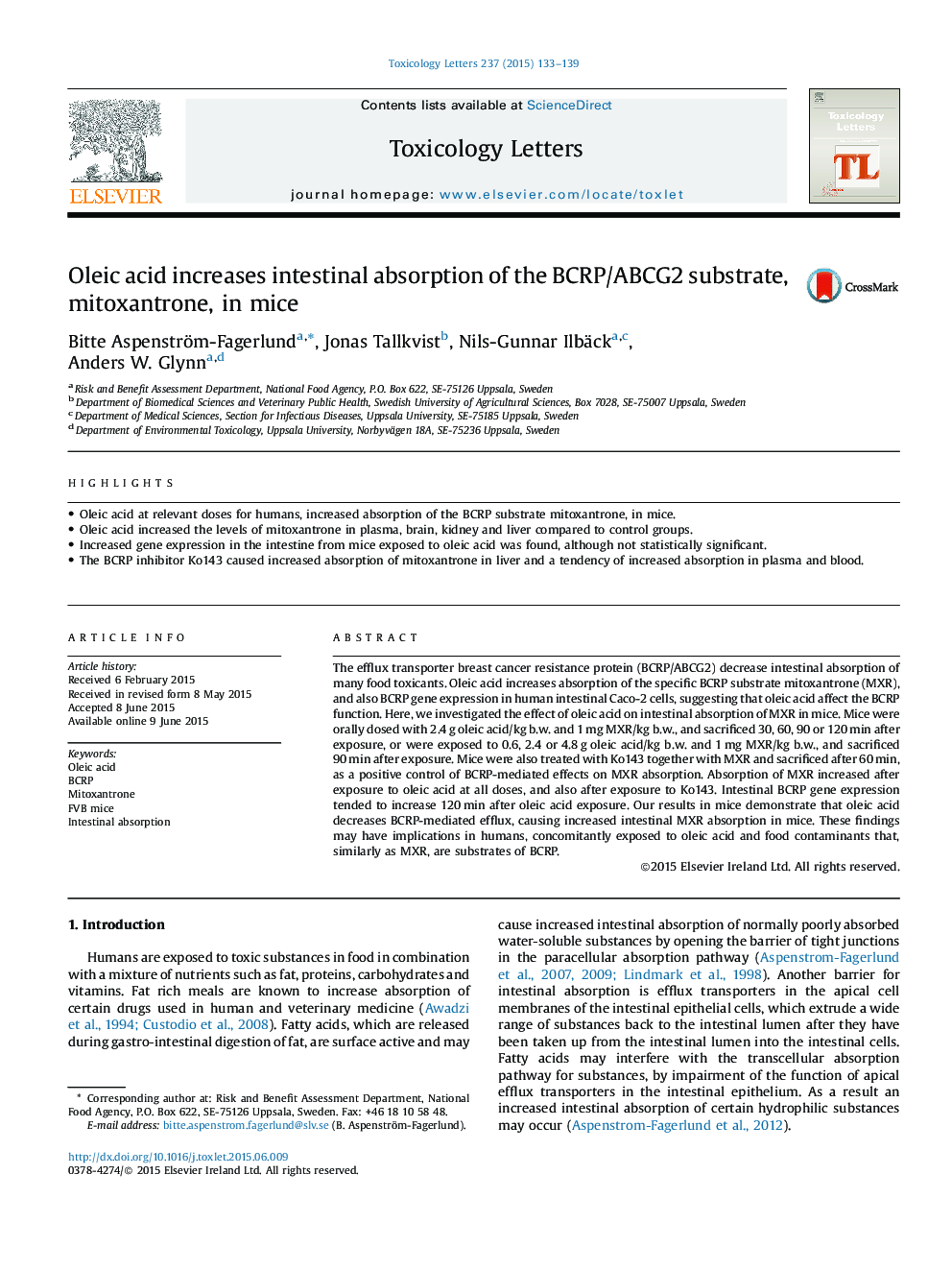| Article ID | Journal | Published Year | Pages | File Type |
|---|---|---|---|---|
| 2598631 | Toxicology Letters | 2015 | 7 Pages |
•Oleic acid at relevant doses for humans, increased absorption of the BCRP substrate mitoxantrone, in mice.•Oleic acid increased the levels of mitoxantrone in plasma, brain, kidney and liver compared to control groups.•Increased gene expression in the intestine from mice exposed to oleic acid was found, although not statistically significant.•The BCRP inhibitor Ko143 caused increased absorption of mitoxantrone in liver and a tendency of increased absorption in plasma and blood.
The efflux transporter breast cancer resistance protein (BCRP/ABCG2) decrease intestinal absorption of many food toxicants. Oleic acid increases absorption of the specific BCRP substrate mitoxantrone (MXR), and also BCRP gene expression in human intestinal Caco-2 cells, suggesting that oleic acid affect the BCRP function. Here, we investigated the effect of oleic acid on intestinal absorption of MXR in mice. Mice were orally dosed with 2.4 g oleic acid/kg b.w. and 1 mg MXR/kg b.w., and sacrificed 30, 60, 90 or 120 min after exposure, or were exposed to 0.6, 2.4 or 4.8 g oleic acid/kg b.w. and 1 mg MXR/kg b.w., and sacrificed 90 min after exposure. Mice were also treated with Ko143 together with MXR and sacrificed after 60 min, as a positive control of BCRP-mediated effects on MXR absorption. Absorption of MXR increased after exposure to oleic acid at all doses, and also after exposure to Ko143. Intestinal BCRP gene expression tended to increase 120 min after oleic acid exposure. Our results in mice demonstrate that oleic acid decreases BCRP-mediated efflux, causing increased intestinal MXR absorption in mice. These findings may have implications in humans, concomitantly exposed to oleic acid and food contaminants that, similarly as MXR, are substrates of BCRP.
